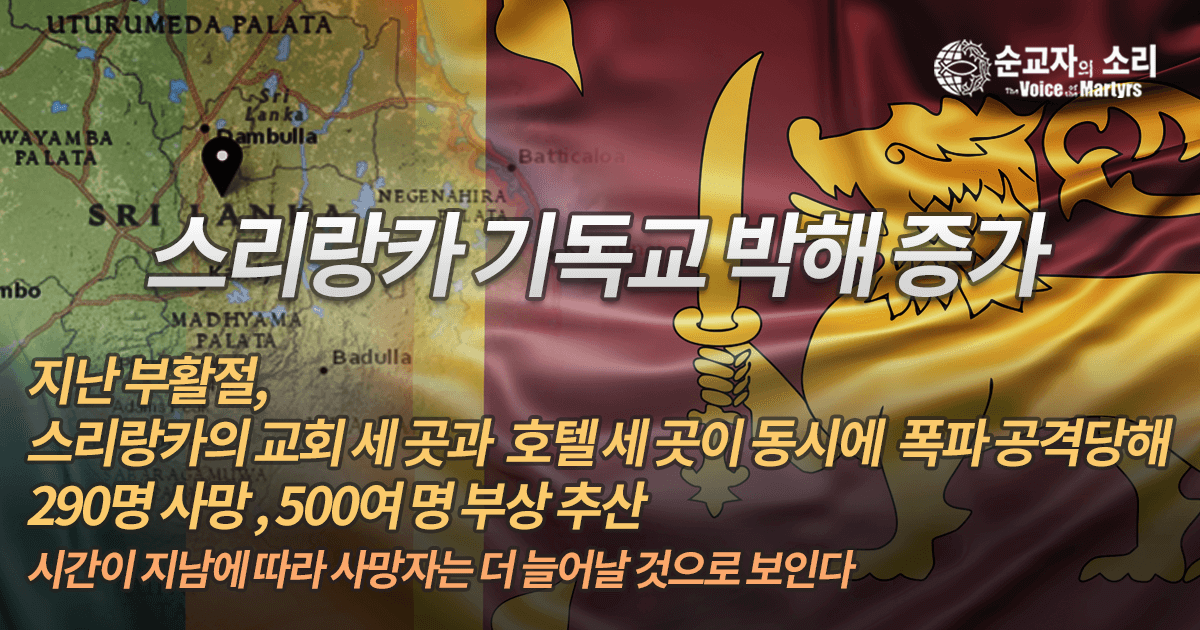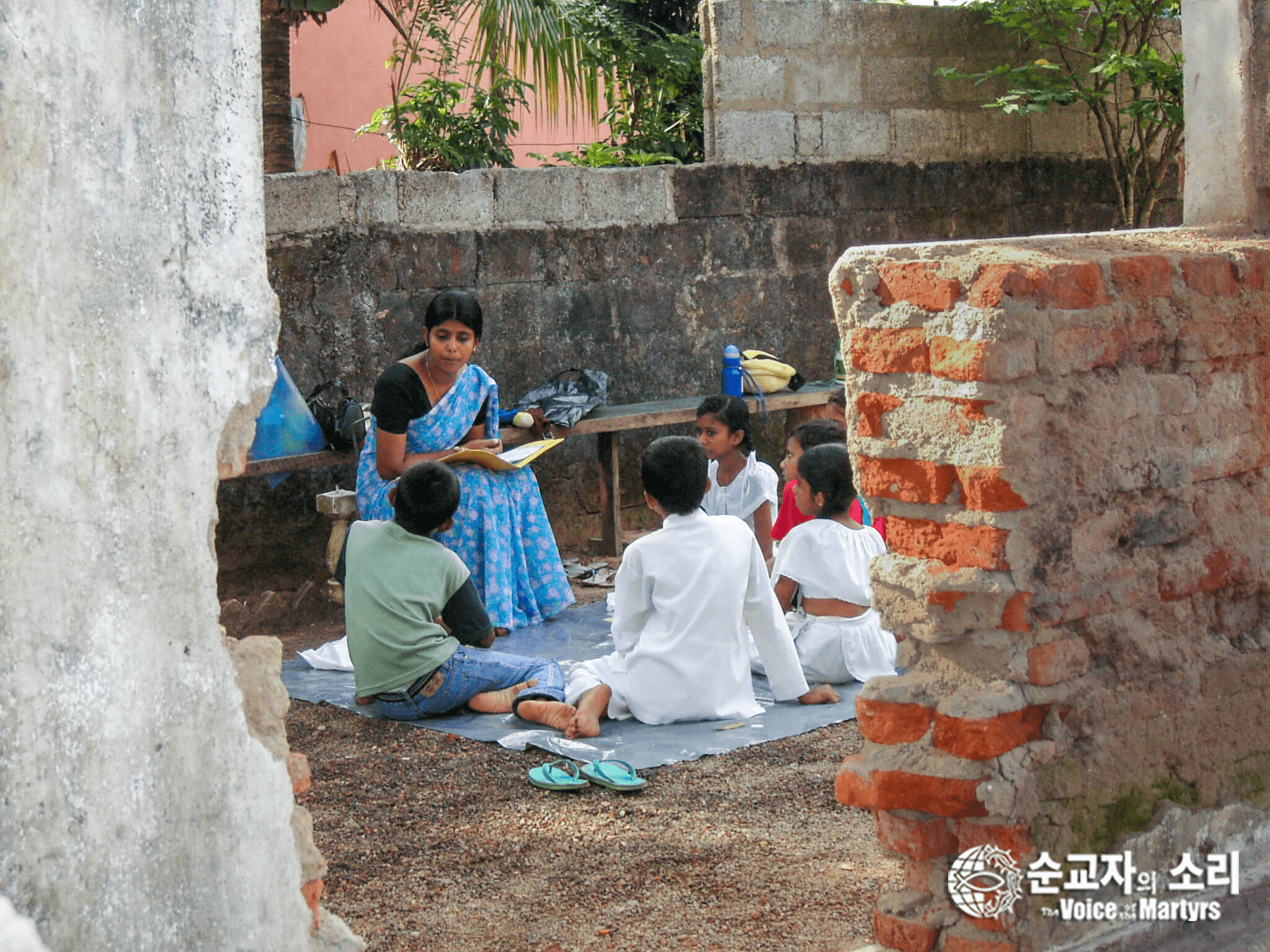
EASTER ATTACK ON SRI LANKAN CHRISTIANS SHOWS PERSECUTION ON THE RISE IN SRI LANKA
During the Easter weekend, three Sri Lankan churches and three hotels were hit by near simultaneous explosions. An estimated 350 were killed and 500 were wounded. According to Voice of the Martyrs representative Hyun Sook Foley, this attack marks a change in the pattern of persecution toward Sri Lankan believers.
“In Sri Lanka, threats and attacks toward Protestant Christians have been common for many years,”
Foley explains.
“But this attack shows persecution is now extending to the Sri Lanka Catholic community as well.”
“Although Sri Lankan civil war ended in 2009, tension still exists between the Buddhist Sinhalese and the Hindu Tamil communities,”
representative Foley explains.

[A woman leads Sunday School in a destroyed church]
“The Christian minority in Sri Lanka often find themselves in the middle of this conflict, facing persecution from both sides.” Representative Foley explains that, according to Sri Lankan law, Christians officially have the right to practice their religion. Foley notes that Christians in Sri Lanka are mainly persecuted by their neighbors, with police and law enforcement sometimes slow to respond out of fear of angering the majority. “Violence from Buddhists and Hindus is mainly caused when one of their members converts to Christianity or is evangelized,” Foley says.
Since the beginning of 2019, Voice of the Martyrs’ Sri Lanka partner, the National Evangelical Alliance of Sri Lanka (NCEASL), has documented twenty-six incidents of anti-Christian persecution in Sri Lanka. These incidents include Christians being falsely accused of crimes, threatened, discriminated against, attacked, mobbed, or ordered to close their places of worship. Representative Foley shared a video of one of these incidents from 2016. In the video, a mob threaten and then attack a Christian church.
VOM and NCEASL report that on February 24th, a Sunday Christian worship service at Christian Family Church in Galgamuwa, Sri Lanka was disrupted by a group of around 200 people. This mob, led by several Buddhist monks, forced their way onto church premises and demanded the service to stop immediately. One monk reportedly threatened to kill congregants if they continued to worship. The group broke chairs and damaged roofing sheets. One woman was dragged into the street and beaten. When the police arrived, the pastor accompanied this woman to the police station.
However, Foley reports, when they arrived at the police station, the monks who led the mob were already filing a complaint against the pastor of the church for breaching the peace.
“Sadly, this kind of counter-charge by the attackers is common,”
notes Foley.
“Police sometimes become reluctant to enforce the Christians’ legal rights for fear of inciting further violence. Wisdom is needed in each case to know whether it is best to rebuild, repair, or relocate the damaged church.”
Voice of the Martyrs Korea is currently receiving donations to help the Sri Lankan church. Anyone wishing to support the project can do so through the Voice of the Martyrs Korea website at https://vomkorea.com/donation/.
Money can also be sent by wire transfer to: 국민은행 463501-01-243303, 예금주: (사)순교자의소리
Persons wishing to donate through wire transfer should add their name and the word “Sri Lanka” to ensure the funds are directed to this project.

